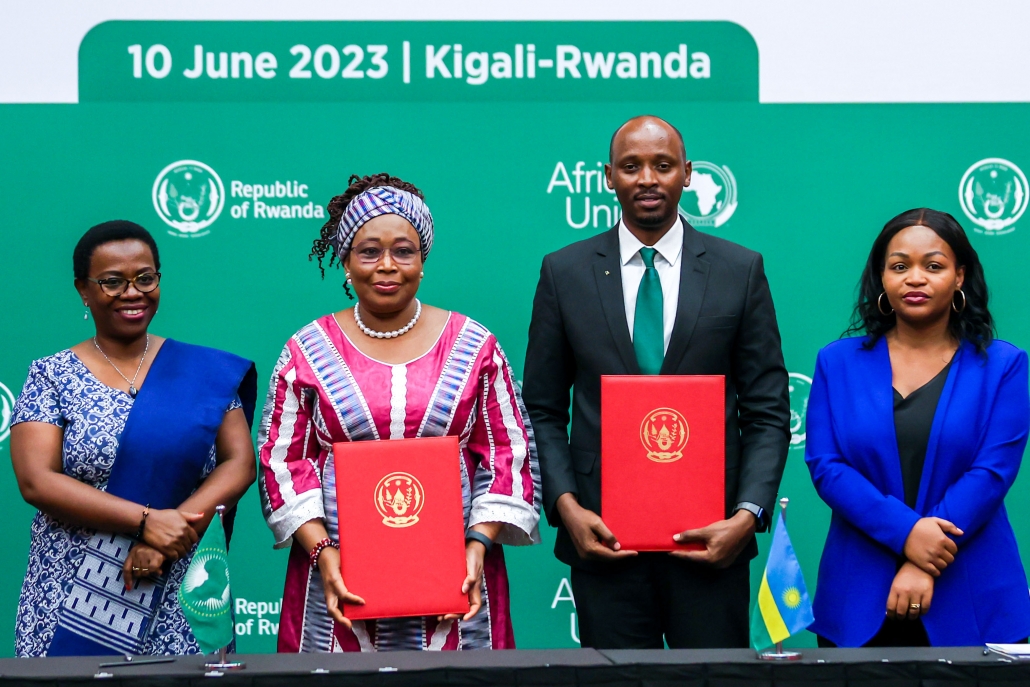Rwanda FDA Encourages Registration and Promotes Quality and Safety for Cosmetics and Household Chemical Products Across Districts
From 16th to 18th January 2024, Rwanda Food and Drugs Authority (Rwanda FDA) facilitated a series of educational sessions in Rusizi, Nyamasheke, and Karongi Districts to encourage registration and promote the Quality and Safety for Cosmetics and Household Chemicals. The sessions focused on Cosmetics and Household Chemical Products Regulatory Affairs, and underscored the importance of product registration with Rwanda FDA prior to market distribution. Engaging stakeholders in the cosmetics and household chemical products industry in regulatory affairs has been identified as a key platform for disseminating regulatory services knowledge.
Rwanda FDA’s proactive engagement across districts underscores its commitment to promoting safety and regulatory compliance in the industry. Through collaborative endeavors and knowledge dissemination, Rwanda FDA sets a precedent for regulatory excellence, ensuring products meet stringent safety standards before entering the market.
The sessions also provided insights into Rwanda’s stringent regulatory framework, including the 2016 Ministerial order prohibiting certain ingredients in cosmetics. Hazardous ingredients such as hydroquinone and mercury found in skin-whitening creams were highlighted, emphasizing the risks associated with their usage, which can lead to adverse effects on the skin and potentially contribute to non-communicable diseases such as cancer, diabetes, and high blood pressure. Stakeholders, including retailers and manufacturers, expressed their commitment to prioritizing consumer safety.
Turikumana Flavien, a representative of cosmetics and household chemicals retailers from Rwimbogo sector in Rusizi District, emphasized the significance of peer education. He said ‘’I am committed to sharing insights on the importance of product registration with fellow retailers to prioritize consumer safety.’’
Dusenge Priscilla, a cosmetics retailer from Nyamasheke District, highlighted the pivotal role of the sessions in shaping cosmetics and household chemicals business practices. She said ‘’These sessions have reshaped my approach to product selection, ensuring avoidance of cosmetics containing harmful ingredients and prioritizing my clients ‘well-being”.
Nzamwita Alphonse, a retailer of household chemicals and manufacturer of food products from Nyamasheke District, acknowledged the invaluable guidance provided during the sessions, stating that the advice on proper products storage and avoidance of banned ingredients will be instrumental in enhancing product quality and safety.
Ufitamahoro Christine, a pharmacist from Karongi District, underscored the importance of consumer safety education. She said ‘’As healthcare professionals, it is imperative to educate clients on the risks associated with prohibited ingredients in cosmetics such as mercury and hydroquinone, to empower clients to make informed choices.’’
Dr. Janvier Mukiza, the Division Manager for Cosmetics & Household Chemicals Registration at Rwanda FDA, emphasized the collaborative effort required for consumer protection, stating that collaboration among stakeholders is essential to safeguard consumer health. ‘’Rwanda FDA remains steadfast in ensuring the safety and efficacy of regulated products,’’ he added. He reiterated the Authority’s commitment to protecting public health and promised continuous partnership, urging stakeholders to engage closely with Rwanda FDA.
The sessions also covered other regulatory functions, including Premise Licensing, Good Manufacturing Practices (GMP), Import and Export requirements, and Market Control. Attendees gained a comprehensive understanding of regulatory services/functions, especially the purpose of registration of cosmetics and household chemical products.


